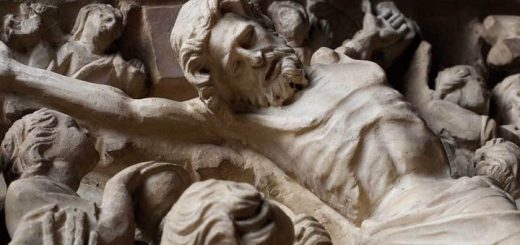He turned and stared at his gaze (Lk 22, 61-62) invested to rediscover a living look
Reflections by Damiano Migliorini*
My reflection starts from a verse that flows from the soul full of tenderness of the evangelist Luca. After the third denying, "the Lord turned and stared at Pietro, and Peter [...] Released, cried bitterly" (Luke 22, 61-62). It looks like the scene of a movie. How did Jesus listen to Peter's denial? He followed him from afar, and Jesus was inside the house of the high priest, already for an hour. The story is not standing! Perhaps, in the moment of the last denial, Jesus leaves the door of the house and, surrounded by the guards, is on the door that gives the courtyard where Pietro sat with the servants. In that immense moment, the rooster sings. Jesus stops: he knows well what Peter has just finished doing. It turns, and in the confusion of people, helmets, spears, fire and words, the looks of Peter and Jesus cross. Time stops, expands.
Let's stop: with what gaze Jesus looked at Pietro? A look of reproach? Of sweetness? Of compassion? Of despair? ... we will never know ... it is perhaps one of the hardest silences of the Gospels. I believe that Pietro has brought that look forever, and had a fundamental importance for his life. If the gaze had been of reproach and anger, Pietro would probably have followed Judas in the path of suicide. Instead Pietro cries. The gaze of Jesus - who must have heard a dagger pierce his back, take off his breath, for the betrayal of his friend - he sent Pietro a message: "Pietro, I knew you would have done it ... but don't despair: I pardon". He cries, Pietro, because he is aware that he has made it big. But in that look he must have perceived that his life would not be marked by that error, which he could start again. Isn't this, perhaps, the dynamics of rebirth of every gesture of forgiveness? The gaze of Jesus healed his heart, gave him hope, broke the spiral of claim and revenge.
Let's stop: let's think about our looks. Those who, like Church, launch to those who consider sinners. Those who, like lay people, launch to the Church. Those who, like men and as victims, launch to our brothers. Our looks, they know how to be of forgiveness and salvation, of rebirth, like that of Jesus to Peter?
.
* Damiano Migliorini is the author, with Beatrice Brogliato, of the volume: Homosexual love. Essays of psychoanalysis, theology and pastoral. In dialogue for a new synthesis (Editrice Cittadella, 2014).






